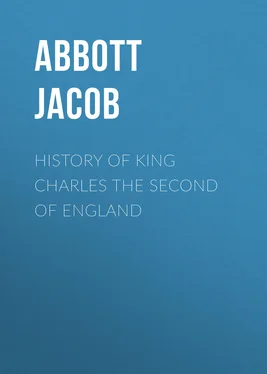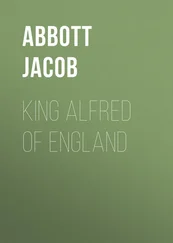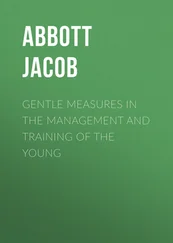Jacob Abbott - History of King Charles the Second of England
Здесь есть возможность читать онлайн «Jacob Abbott - History of King Charles the Second of England» — ознакомительный отрывок электронной книги совершенно бесплатно, а после прочтения отрывка купить полную версию. В некоторых случаях можно слушать аудио, скачать через торрент в формате fb2 и присутствует краткое содержание. Жанр: foreign_prose, foreign_antique, на английском языке. Описание произведения, (предисловие) а так же отзывы посетителей доступны на портале библиотеки ЛибКат.
- Название:History of King Charles the Second of England
- Автор:
- Жанр:
- Год:неизвестен
- ISBN:нет данных
- Рейтинг книги:4 / 5. Голосов: 1
-
Избранное:Добавить в избранное
- Отзывы:
-
Ваша оценка:
- 80
- 1
- 2
- 3
- 4
- 5
History of King Charles the Second of England: краткое содержание, описание и аннотация
Предлагаем к чтению аннотацию, описание, краткое содержание или предисловие (зависит от того, что написал сам автор книги «History of King Charles the Second of England»). Если вы не нашли необходимую информацию о книге — напишите в комментариях, мы постараемся отыскать её.
History of King Charles the Second of England — читать онлайн ознакомительный отрывок
Ниже представлен текст книги, разбитый по страницам. Система сохранения места последней прочитанной страницы, позволяет с удобством читать онлайн бесплатно книгу «History of King Charles the Second of England», без необходимости каждый раз заново искать на чём Вы остановились. Поставьте закладку, и сможете в любой момент перейти на страницу, на которой закончили чтение.
Интервал:
Закладка:
The queen's destination was York, the great and ancient capital of the north of England York was the head quarters of King Charles's army, though he himself was not there at this time. As soon as news of the queen's arrival reached York, the general in command there sent down to the coast a detachment of two thousand men to escort the heroine, and the stores and money which she had brought, to her husband's capital. At the head of this force she marched in triumph across the country, with a long train of ordnance and baggage wagons loaded with supplies. There were six pieces of cannon, and two hundred and fifty wagons loaded with the money which she had obtained in Holland. The whole country was excited with enthusiasm at the spectacle. The enthusiasm was increased by the air and bearing of the queen, who, proud and happy at this successful result of all her dangers and toils, rode on horseback at the head of her army like a general, spoke frankly to the soldiers, sought no shelter from the sun and rain, and ate her meals, like the rest of the army, in a bivouac in the open field. She had been the means, in some degree, of leading the king into his difficulties, by the too vigorous measures she had urged him to take in the case of the attempted parliamentary arrest. She seems to have been determined to make that spirit of resolution and energy in her, which caused the mischief then, atone for it by its efficient usefulness now. She stopped on her march to summon and take a town, which had been hitherto in the hands of her husband's enemies, adding thus the glory of a conquest to the other triumphs of the day.
In fact, the queen's heart was filled with pride and pleasure at this conclusion of her enterprise, as is very manifest from the frequent letters which she wrote to her husband at the time. The king's cause revived. They gradually approached each other in the operations which they severally conducted, until at last the king, after a great and successful battle, set off at the head of a large escort to come and meet his wife. They met in the vale of Keynton, near Edgehill, which is on the southern borders of Warwickshire, near the center of the island. The meeting was, of course, one of the greatest excitement and pleasure. Charles praised the high courage and faithful affection of his devoted wife, and she was filled with happiness in enjoying the love and gratitude of her husband.
The pressure of outward misfortune and calamity has always the same strong tendency as was manifest in this case to invigorate anew all the ties of conjugal and domestic affection, and thus to create the happiness which it seems to the world to destroy. In the early part of Charles and Henrietta's married life, while every thing external went smoothly and prosperously with them, they were very far from being happy. They destroyed each other's peace by petty disputes and jars about things of little consequence, in which they each had scarcely any interest except a desire to carry the point and triumph over the other. King Charles himself preserved a record of one of these disputes. The queen had received, at the time of her marriage, certain estates, consisting of houses and lands, the income of which was to be at her disposal, and she wished to appoint certain treasurers to take charge of this property. She had made out a list of these officers in consultation with her mother. She gave this list to Charles one night, after he was himself in bed. He said he would look at it in the morning, but that she must remember that, by the marriage treaty, he was to appoint those officers. She said, in reply, that a part of those whom she had named were English. The king said that he would look at the paper in the morning, and such of the English names as he approved he would confirm, but that he could not appoint any Frenchmen. The queen answered that she and her mother had selected the men whom she had named, and she would not have any body else. Charles rejoined that the business was not either in her power or her mother's, and if she relied on such an influence to effect her wishes, he would not appoint any body that she recommended. The queen was very much hurt at this, and began to be angry. She said that if she could not put in whom she chose, to have the care of her property, she would not have any such property. He might take back her houses and lands, and allow her what he pleased in money in its stead. Charles replied by telling her to remember whom she was speaking to; that he could not be treated in that manner; and then the queen, giving way to lamentations and tears, said she was wretched and miserable; every thing that she wanted was denied her, and whatever she recommended was refused on the very account of her recommendation. Charles tried to speak, but she would not hear; she went on with her lamentations and complaints, interrupted only by her own sobs of passion and grief.
The reader may perhaps imagine that this must have been an extreme and unusual instance of dissension between this royal pair; but it was not. Cases of far greater excitement and violence sometimes occurred. The French servants and attendants, whom the queen very naturally preferred, and upon whom the king was as naturally inclined to look with suspicion and ill will, were a continual source of disagreement between them. At last, one afternoon, the king, happening to come into that part of the palace at Whitehall where the queen's apartments were situated, and which was called "the queen's side", found there a number of her gentlemen and lady attendants in a great frolic, capering and dancing in a way which the gay Frenchmen probably considered nothing extraordinary, but which King Charles regarded as very irreverent and unsuitable conduct to be witnessed in the presence of an English queen. He was very much displeased. He advanced to Henrietta, took her by the arm, conducted her sternly to his own side of the palace, brought her into one of his own apartments, and locked the door. He then sent an officer to direct all the French servants and attendants in the queen's apartments to leave the palace immediately, and repair to Somerset House, which was not far distant, and remain there till they received further orders. The officer executed these commands in a very rough manner. The French women shrieked and cried, and filled the court yard of the palace with their clamor; but the officer paid no regard to this noise. He turned them all out of the apartments, and locked the doors after them.
The queen was rendered quite frantic with vexation and rage at these proceedings. She flew to the windows to see and to bid farewell to her friends, and to offer them expressions of her sympathy. The king pulled her away, telling her to be quiet and submit, for he was determined that they should go. The queen was determined that she would not submit. She attempted to open the windows; the king held them down. Excited now to a perfect frenzy in the struggle, she began to break out the panes with her fist, while Charles exerted all his force to restrain and confine her, by grasping her wrists and endeavoring to force her away. What a contrast between the low and sordid selfishness and jealousy evinced in such dissensions as these, and the lofty and heroic devotedness and fidelity which this wife afterward evinced for her husband in the harassing cares the stormy voyages, and the martial exposures and fatigues which she endured for his sake! And yet, notwithstanding this great apparent contrast, and the wide difference in the estimation which mankind form of the conduct of the actor in these different scenes, still we can see that it is, after all, the impulse of the same lofty and indomitable spirit which acted in both. The soul itself of the queen was not altered, nor even the character of her action. The change was in the object and aim. In the one case she was contending against the authority of a husband, to gain petty and useless victories in domestic strife; in the other, the same spirit and energy were expended in encountering the storms and tempests of outward adversity to sustain her husband and protect her children. Thus the change was a change of circumstances rather than of character.
Читать дальшеИнтервал:
Закладка:
Похожие книги на «History of King Charles the Second of England»
Представляем Вашему вниманию похожие книги на «History of King Charles the Second of England» списком для выбора. Мы отобрали схожую по названию и смыслу литературу в надежде предоставить читателям больше вариантов отыскать новые, интересные, ещё непрочитанные произведения.
Обсуждение, отзывы о книге «History of King Charles the Second of England» и просто собственные мнения читателей. Оставьте ваши комментарии, напишите, что Вы думаете о произведении, его смысле или главных героях. Укажите что конкретно понравилось, а что нет, и почему Вы так считаете.












